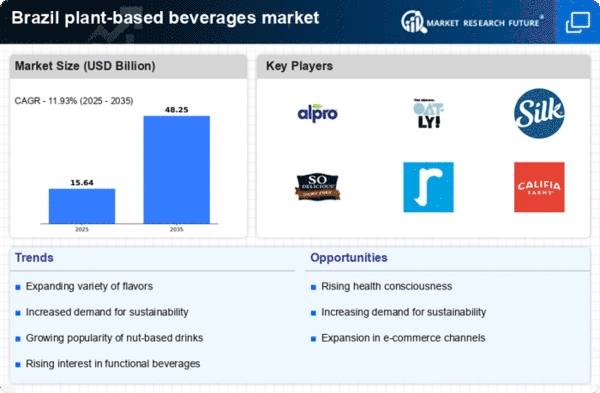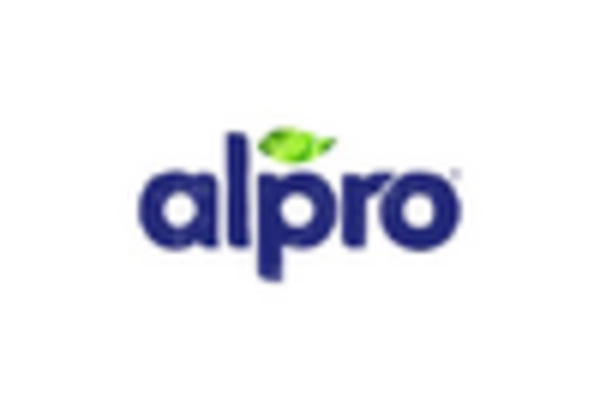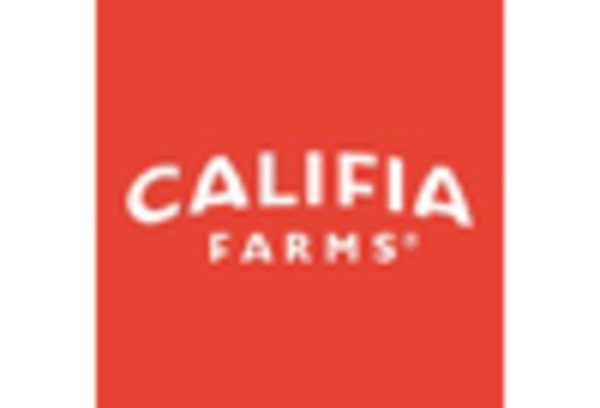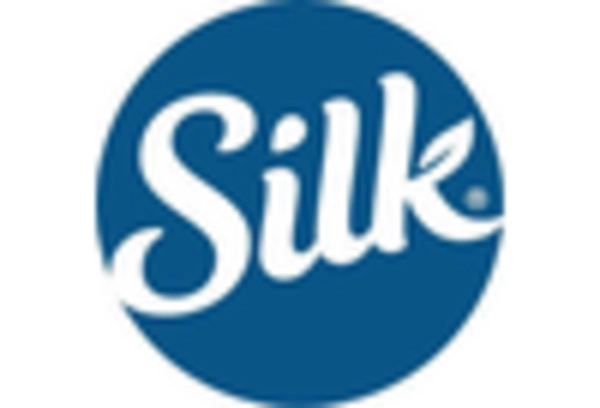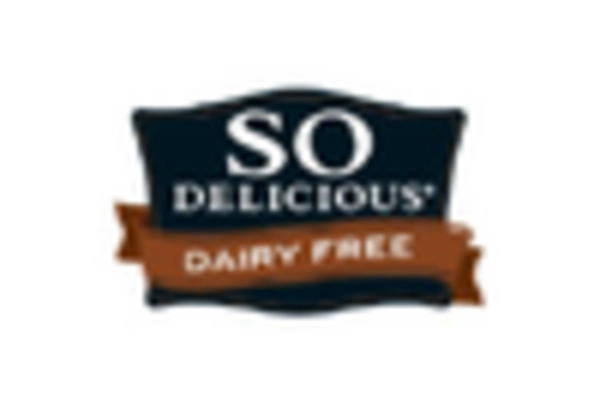Diverse Flavor Profiles
The plant based-beverages market in Brazil is experiencing a surge in innovation, particularly in flavor offerings. Manufacturers are increasingly experimenting with diverse ingredients, such as exotic fruits and spices, to create unique beverage options. This trend appears to resonate well with Brazilian consumers, who have a rich culinary heritage and a penchant for bold flavors. As a result, the market is likely to see an influx of new products that cater to these preferences. Data indicates that flavored plant based beverages have seen a growth rate of approximately 25% in recent years, suggesting that innovation in flavor profiles could be a key driver for the industry.
Environmental Awareness
Environmental concerns are increasingly shaping consumer choices in Brazil, particularly regarding food and beverage consumption. The plant based-beverages market is likely to see growth as consumers become more aware of the environmental impact of their dietary choices. Reports suggest that plant based beverages typically have a lower carbon footprint compared to traditional dairy products. This awareness may drive consumers to opt for plant based alternatives, thereby boosting market demand. Furthermore, as sustainability becomes a core value for many Brazilian consumers, brands that emphasize eco-friendly practices in their production processes may gain a competitive edge in the plant based-beverages market.
Rising Vegan Population
The increasing number of individuals adopting vegan lifestyles in Brazil appears to be a pivotal driver for the plant based-beverages market. Recent data indicates that approximately 14% of the Brazilian population identifies as vegan, a figure that has been steadily rising. This demographic shift is likely to influence consumer preferences, leading to a greater demand for plant based beverages. As more consumers seek alternatives to dairy and animal-based products, the market is expected to expand significantly. The plant based-beverages market is thus positioned to benefit from this trend, as brands innovate to cater to the evolving tastes and preferences of a growing vegan population.
Increased Retail Availability
The expansion of retail channels in Brazil is facilitating greater access to plant based beverages, which is likely to drive market growth. Supermarkets, health food stores, and online platforms are increasingly stocking a variety of plant based options, making it easier for consumers to find and purchase these products. This increased availability appears to correlate with rising consumer interest in plant based diets. Data suggests that the number of retail outlets offering plant based beverages has increased by over 30% in the past few years. As the plant based-beverages market continues to expand its presence in retail, it may attract a broader consumer base.
Health Benefits of Plant Based Diets
The perceived health benefits associated with plant based diets are becoming a significant driver for the plant based-beverages market in Brazil. Consumers are increasingly seeking beverages that align with their health goals, such as weight management and improved digestion. Research indicates that plant based beverages are often lower in calories and saturated fats compared to their dairy counterparts, making them appealing to health-conscious individuals. This trend is likely to continue as more Brazilians prioritize wellness in their dietary choices. Consequently, the plant based-beverages market may experience sustained growth as brands highlight the health advantages of their products.


